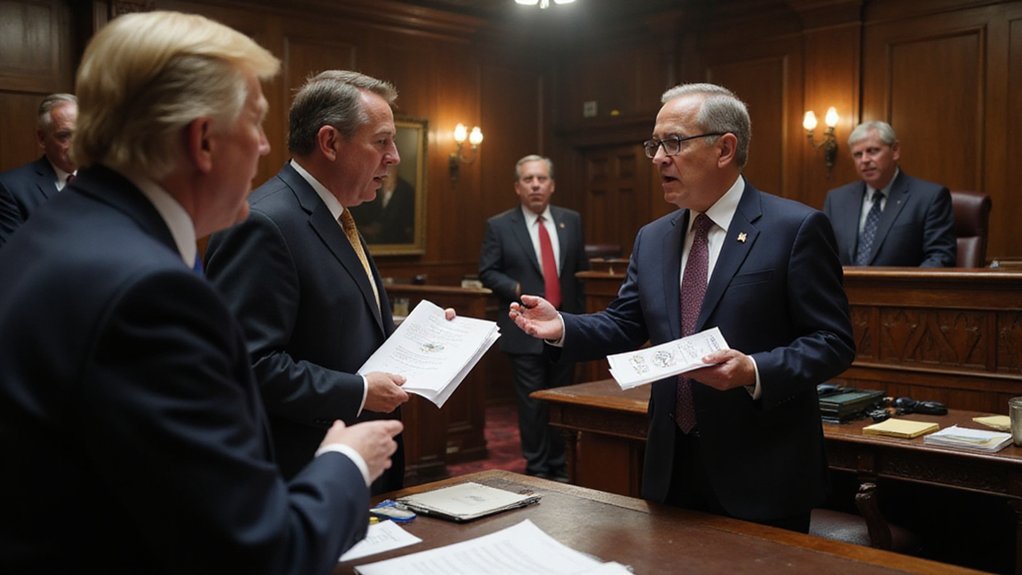A coalition of nine Senate Democrats, spearheaded by Ruben Gallego, has mounted a formidable challenge to the GENIUS Act—legislation that would establish federal oversight for stablecoin issuers—citing concerns over former President Trump‘s entanglements with cryptocurrency ventures that could potentially yield him hundreds of millions in personal gains.
The opposition imperils the bill’s prospects, as it requires a 60-vote supermajority to advance through the chamber, leaving proponents scrambling to salvage what had been considered bipartisan legislation.
Senate Majority Leader Chuck Schumer has reportedly urged fellow Democrats behind closed doors to withhold support, prioritizing ethical concerns over the legislation’s policy merits.
The political calculus becomes even more intricate considering Fairshake PAC‘s $10 million support for Gallego, adding a layer of complexity to an already fraught situation.
Trump’s crypto connections have raised eyebrows across Washington—from hosting exclusive dinners for holders of Trump-branded memecoins to connections with Abu Dhabi’s MGX using Trump-linked USD1 stablecoin for Binance investments.
Despite his protestations that these ventures predate the election cycle, critics remain unconvinced (rather predictably, one might add).
The stalemate threatens more than just stablecoin regulation.
The impasse jeopardizes broader market structure legislation that would define jurisdictional boundaries between the SEC and CFTC—a regulatory clarification the crypto industry has long sought.
Without these guardrails, America risks ceding regulatory leadership while entrepreneurs navigate an increasingly Byzantine compliance landscape.
Republicans dismiss the conflict allegations as partisan obstruction, emphasizing the urgent need to address payment system vulnerabilities.
Meanwhile, ethics experts have flagged the undisclosed crypto gains as potential violations warranting investigation.
The controversy sets a troubling precedent about the influence of personal finances on fintech legislation.
As regulatory uncertainty persists, stablecoin issuers and crypto markets face prolonged limbo—the sort of regulatory vacuum that typically benefits neither consumers nor legitimate industry players.
Critics have noted that Trump’s involvement with cryptocurrency projects appears to leverage the simplified token creation process that allows individuals to launch meme coins without extensive technical knowledge.
Schumer’s leadership faces a pivotal test as he navigates these intra-party disagreements that pit policy priorities against ethical concerns. Senator Elizabeth Warren has been particularly vocal, stating the legislation would enable the president and his family to line their pockets with cryptocurrency profits.
Many lawmakers criticize Trump’s dismissive stance toward small business relief, as he previously claimed they’re not going to need it when asked about tariff exemptions.









